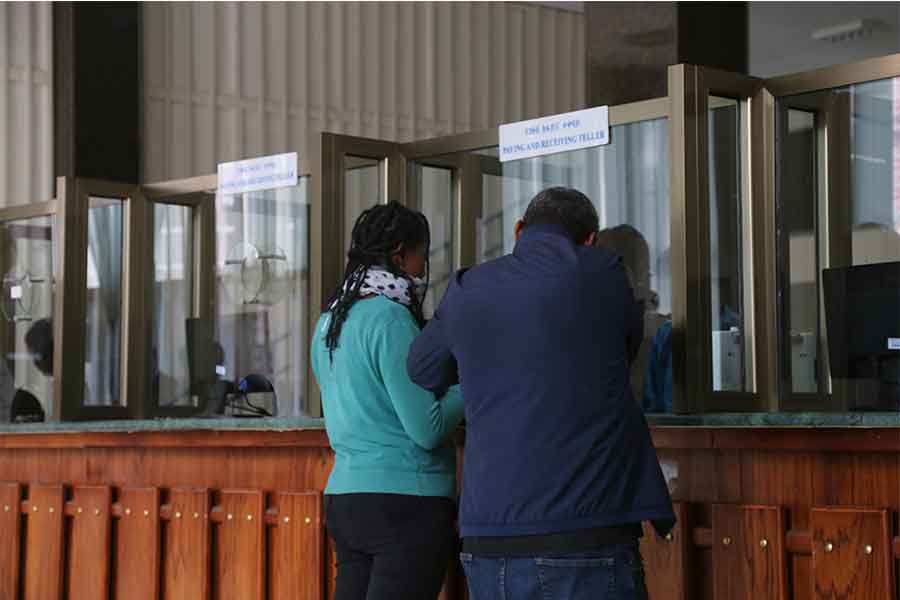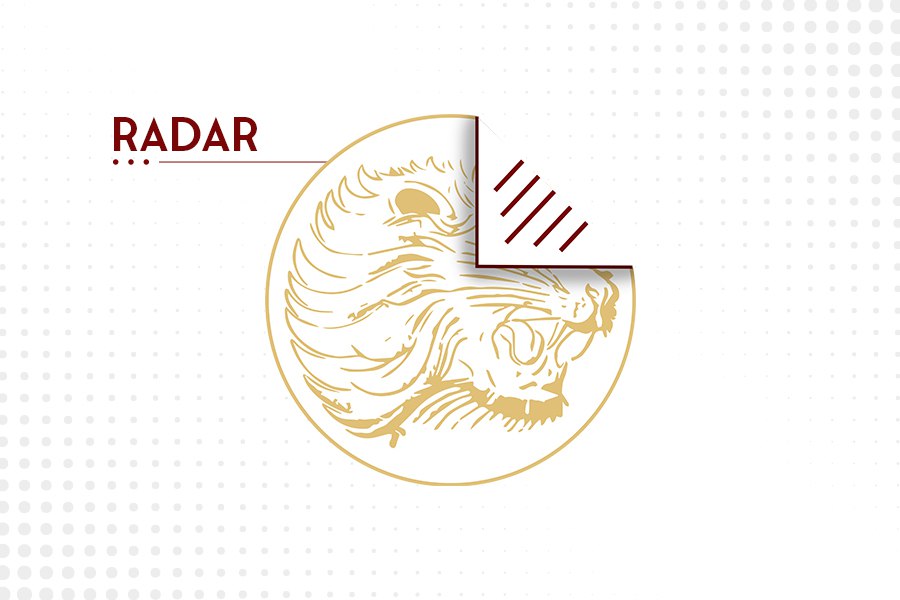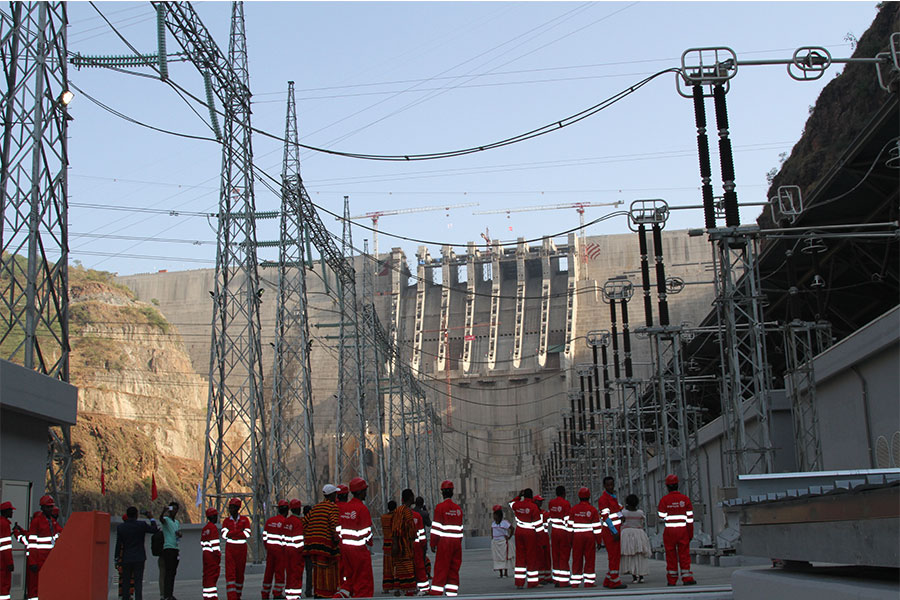
Featured | Jul 13,2019
Jul 10 , 2020
By Clay Webster
Wholesale internet shutdowns are a remnant of a relationship of fear that a government has with its people. When the internet is more properly treated as a utility, the government is demonstrating its respect for the people by leaving it on during a crisis, writes Clay Webster (henryclaywebster@gmail.com), who studied energy and environmental policy at Johns Hopkins School of Advanced International Studies and has written about energy, commodity and financial markets for The Motley Fool, Platts and US News & World Report.
Taken for granted in the general tumult of the recent crisis is the notion that the federal government has the right to turn off the internet when and as it chooses. Pro-government partisans will argue that it is a necessary policy for reducing violence-oriented protests and stamping out the mobilisation of mobs. Opponents and critics of the government will shy away from direct complaints, knowing all too well that past incumbents relied on this policy to great effect.
Underlying this broad belief is the feeling, first of all, that the policy of internet shutdowns work. The idea is that protesters and looters will be unable to effectively organise without access to social media platforms. Without unity, the protesters will lack the mob mentality of group cohesion that enables them to throng the streets and overwhelm the police. But if anything, as this last week has shown, mobs seem to be immune to the information desert. Vandalism and violence occurred even after the internet breaker was pulled.
Without access to a broad array of coverage, especially through social media that allows citizen journalism and an up-to-the-minute army of information gatherers to explain a social happening in flux, state media is all that is left to fill the void. But by limiting other competitors in the news gathering game, state media is necessarily seen as state propaganda.
When the government tells the citizenry that they are the only game in town, citizens become understandably skeptical of the government’s motives. In this instance, the authorities are not allowing competing news outlets to share their own view of an event. With almost nothing to compare the government's line to, the effect of an internet shutdown is to breed distrust of government news outlets and inculcate greater partisanship against government decision-making. In addition, a heavy measure of conspiracy theories begin to pervade the populace. The thinking goes that if the government shuts down some information outlets, then there is something they want to hide.
The false reasoning of those who will tell us that closing the internet is necessary is often tied up with the view that social media only has the result of charging up the populace to take to the streets. What is forgotten is that social media and the internet writ large are also the greatest modern sources of entertainment – especially for the youth. For every individual who finds a call to action on Twitter, there may be a dozen who view the pictures of vandalism as a reason to stay home and stream the latest Rick and Morty episode.
With so much modern culture and commerce finding a home on the internet, shutting it down may inadvertently leave more young people to find their entertainment out in public – the exact opposite of the policy’s intent. While social media does often have a galvanising social effect, it more often serves as a platform for “Twitter activists” who do not leave their bedrooms. In effect, it allows those who might take to the streets in a total shutdown to instead vent their frustrations in 280 characters.
Another, and possibly more important, question is to ask what it says about a society that routinely shuts off the internet during crises.
Is it an open society after all?
Information vacuums and media shutdowns are normally viewed as tactics of authoritarian regimes. While Propsperity Party has begun marching under the banner of a much-heralded new economic formula for the nation, it appears that it is yet to shed the repressive fatigues it once wore as members in the EPRDF when it comes to the political arena.
Wholesale internet shutdowns are a remnant of a relationship of fear that a government has with its people. When the internet is more properly treated as a utility, the government is demonstrating its respect for the people by leaving it on during a crisis and in turn showing its lack of overt fear of the demonstrators.
Now the obvious rebuttal to this line of reasoning is that with the inclusion of bombings in this past week’s events, the federal government needed to shut down the internet in order to halt possible enemy communications.
This is an old and storied tactic that receives plenty of continued respect, partly due to its inclusion in Edward Luttwak‘s “Coup d’Etat: A Practical Handbook”, the founding opus dedicated to helping regimes protect themselves from internal overthrow and maintain stability during crises. But any modern coup attempt worth its salt does not rely on national communication systems and instead opts for independent radio or satellite methods of communication.
Better methods of crowd control exist however. Shutting down non-essential travel between the capital and its outskirts is but one example. Enforcing daylight curfews is another as well as accompanying protest marches with heavy law enforcement presence. Internet shutdowns, on the other hand, do little to manage unrest and weigh heavily on the government’s relationship with the silent, law-abiding majority.
PUBLISHED ON
Jul 10,2020 [ VOL
21 , NO
1054]


Radar | Apr 15,2023

Fortune News | Jul 06,2019

Radar | May 25,2019

Featured | Jun 08,2019

My Opinion | Jul 18,2020

My Opinion | 132272 Views | Aug 14,2021

My Opinion | 128692 Views | Aug 21,2021

My Opinion | 126600 Views | Sep 10,2021

My Opinion | 124206 Views | Aug 07,2021





Dec 22 , 2024 . By TIZITA SHEWAFERAW
Charged with transforming colossal state-owned enterprises into modern and competitiv...

Aug 18 , 2024 . By AKSAH ITALO
Although predictable Yonas Zerihun's job in the ride-hailing service is not immune to...

Jul 28 , 2024 . By TIZITA SHEWAFERAW
Unhabitual, perhaps too many, Samuel Gebreyohannes, 38, used to occasionally enjoy a couple of beers at breakfast. However, he recently swit...

Jul 13 , 2024 . By AKSAH ITALO
Investors who rely on tractors, trucks, and field vehicles for commuting, transporting commodities, and f...

Jul 12 , 2025
Political leaders and their policy advisors often promise great leaps forward, yet th...

Jul 5 , 2025
Six years ago, Ethiopia was the darling of international liberal commentators. A year...

Jun 28 , 2025
Meseret Damtie, the assertive auditor general, has never been shy about naming names...

Jun 21 , 2025
A well-worn adage says, “Budget is not destiny, but it is direction.” Examining t...

Jul 13 , 2025 . By YITBAREK GETACHEW
The Addis Abeba City Revenue Bureau has introduced a new directive set to reshape how...

Jul 13 , 2025 . By BEZAWIT HULUAGER
Addis Abeba has approved a record 350 billion Br budget for the 2025/26 fiscal year,...

Jul 13 , 2025 . By RUTH BERHANU
The Addis Abeba Revenue Bureau has scrapped a value-added tax (VAT) on unprocessed ve...

Jul 13 , 2025 . By NAHOM AYELE
Federal lawmakers have finally brought closure to a protracted and contentious tax de...